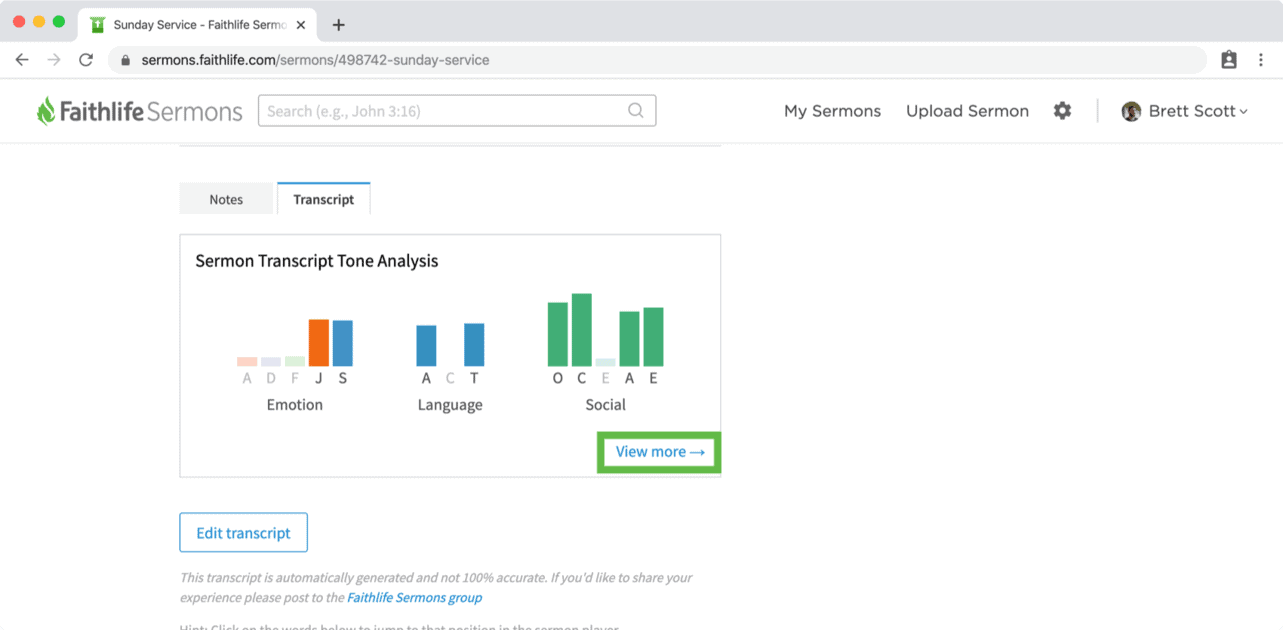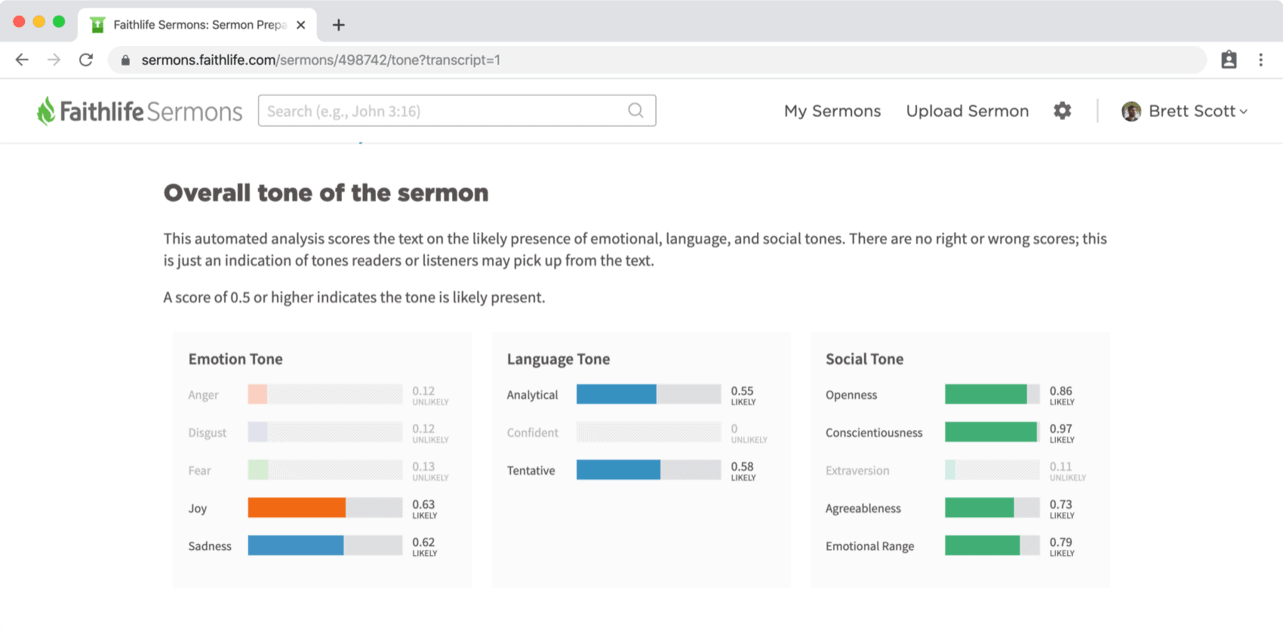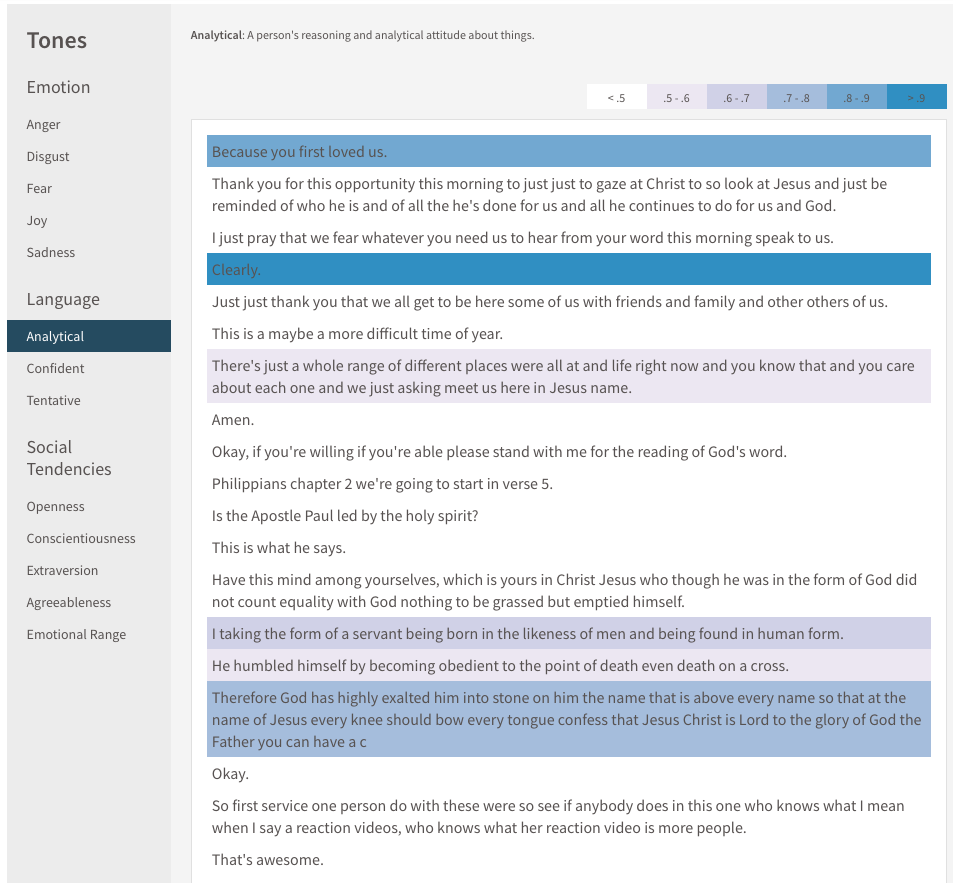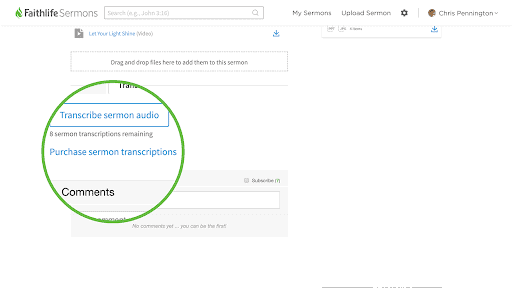Have you ever reread a line in an email and thought, “Yikes. That’s not how I wanted it to come across”? (Please say it’s not just me . . . )
The same thing can happen with sermons. Preachers know their people-loving, mission-minded intentions for proclaiming the Word. They believe their sermon has a certain tone. But is the sermon’s intended tone always what the listeners are hearing?
Now, of course, reception isn’t all up to the preacher.
As Bryan Chapell says in Preparing and Delivering Christ-Centered Sermons, “The only person who actually can change the heart is the Holy Spirit working by and with the Word.”1
But at the same time, choosing the right words—having the right tone—can help listeners stay engaged and remain more receptive to the message. It never hurts to double-check that what you think you’re saying matches what people are actually hearing.
For example, are your sermons conveying anger, disgust, or fear more than they are joy?
Is your language more analytical than you might realize, keeping your congregation at arms’ length?
To find out, you could listen to your sermon podcast or watch your recorded live streams to analyze each sermon and see how you’re coming across. Two things keep that from being practical, however:
- Objectivity. It’s difficult (if not impossible) to be truly objective when we’re reviewing ourselves. And since our way of communicating comes naturally, it may not occur to us how other personalities may interpret our words.
- Time. Watching your sermon recording or listening to your sermon podcast can be a good way to evaluate your gestures, facial expressions, etc., but do you have time for that every week?

Here’s a way to check your sermon tone that’s objective and quick: Sermon Tone Analysis.
In just a few moments, Sermon Tone Analysis gives you key information about how a sermon is likely to be perceived. The tool analyzes your sermon’s text to create a helpful report about three important elements of communication:
- Emotion (e.g., anger, disgust, fear, joy, sadness)
- Language (analytical, confident, or tentative)
- Social tendencies (openness, conscientiousness, extraversion, agreeableness, emotional range)
When combined, these elements create a tone. You can dig deeper into tone by clicking on an emotion, then seeing sentences from your sermon that convey it.
How to try Sermon Tone Analysis
- First, sign in to Sermons. If you don’t have a Sermons subscription yet, you can try Sermons free for 14 days, no credit card required.
- Upload a sermon by clicking Upload Sermon at the top of the page. Or open a past sermon by clicking My Sermons and selecting the one you want.
- If you already have a sermon transcript, scroll down to the bottom of the page and click Select sermon text.
- If you don’t yet have a sermon transcript, go to the Transcripts section underneath the sermon, then click Transcribe sermon audio. If you don’t have any transcription credits, grab them for as little as $1 a sermon.
3. Once your transcript is finished, voilà! Your Sermon Tone Analysis will automatically generate so you can study it at your convenience. And since Faithlife Sermons comes with sermon archiving, you can upload hundreds of sermons, generate transcripts, and easily evaluate a sermon’s tone any time. (Here’s an idea: compare a recent sermon’s tone with a past sermon’s tone, e.g., pre-COVID and today.)
***
Get started with Sermons for free and try Sermon Tone Analysis this Sunday!




 3. Once your transcript is finished, voilà! Your Sermon Tone Analysis will automatically generate so you can study it at your convenience. And since Faithlife Sermons comes with
3. Once your transcript is finished, voilà! Your Sermon Tone Analysis will automatically generate so you can study it at your convenience. And since Faithlife Sermons comes with 


